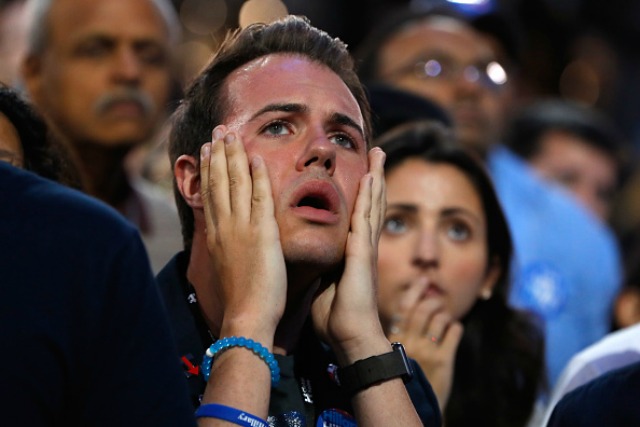Just How Much Does The Electoral College Screw Illinois?
By Stephen Gossett in News on Nov 18, 2016 2:00PM

Getty Images / Photo: Aaron P. Bernstein
If you’re like us, you’re pretty effing sick of the electoral college. Not because you’re a bitter loser (although we’re still feeling a little bitter), but by virtue of the fact that the system is outdated, promotes institutional racism, and is basically anti-democratic.
Given that the electoral college notably lowballs the most populous states and Illinois ranks among the top five in total population—and number one in the Midwest region by several million people—we decided to look at just how much Illinois was getting shafted by the founding fathers’ folly.
Perhaps you saw a recent article by Katy Collins, in the Washington Post, in which she determined the California vote is weighted a whopping 3.6 times less than a Wyoming voter, based on the ratio between state population and number of electors.
Illinois, it turns out, doesn’t fare much better at all. With a population of 12,880,000 people but only 20 electoral votes, our state ascribes a single electoral vote to 644,000 voters. Based on Wyoming’s population (584,153) and electors (3), they only need 194, 717 voters per electoral vote. So our vote is weighted 331 percent less—and you can compare that to California’s 362 percent. Lucky us.
This obviously opens up the debate of whether or not the electoral college serves a purpose nonetheless—a debate to which the answer is emphatically “no.” The original purpose of the system is essentially obsolete, the Post convincingly argues:
“The electoral college is designed to favor sparsely populated areas. It was created to strengthen the agrarian elite, offer more federal power to slaveholding states, and counterbalance factionalism and polarization. But it’s not doing any of this today. Rather, the electoral college values some votes above others, while entirely disenfranchising the 4 million Americans who live in overseas territories.”
The ultimate cost is a legacy of disenfranchisement and “a legitimacy crisis,” Collin argues.
Jilted large-population staters across the country are thus clamoring for electoral voters to cast ballots for the popular-vote winner. They’re also deep-diving into the National Popular Vote Interstate Compact, an agreement in which pledged states cast ballots for whoever wins the popular vote. Many states have signed on (including Illinois) although not enough to swing 270 electoral votes, and less populous states have little incentive to join. As Polifact notes, it could also open up several truckloads of cans of legal worms and a likely Supreme Court challenge.
But still, it’s all evidence, along with Illinois’ sad, under-valued vote, that a change is in order.